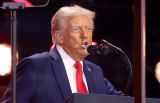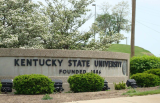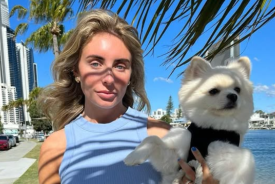Coffee Poisoning: Houston Oncologist Charged with Aggravated Assault for Spiking Lover's Drink
ByA Houston cancer specialist was poisoned by his co-worker and lover with sweet-tasting chemicals used in antifreeze and medical research, the Associated Press reported.
Ana Maria Gonzalez-Angulo was charged last week with aggravated assault against George Blumenschein. According to the criminal complaint, the two University of Texas M.D. Anderson Cancer Center doctors were engaged in "a casual sexual relationship."
According to the Houston Chronicle, Gonzalez-Angulo, a breast cancer oncologist, gave Blumenschein a cup of black coffee, the way he likes it. When he asked for a new cup because the one he had was too sweet, she encouraged him to finish it anyway.
Sixteen hours later, he had to be taken to an emergency center, where he was treated for central nervous system depression, cardiopulmonary and renal failure.
"Dr. Gonzalez-Angulo is completely innocent," Derek Hollingsworth, Angulo's attorney said in a statement. "She is a distinguished citizen and scientist, and these allegations are totally inconsistent with her personal and professional life."
Hollingsworth added that the UT Police Department "jumped the gun and filed charges that should never have been filed."
M.D. Anderson officials did not comment other than by saying Gonzalez-Angulo is on paid administrative leave. She has been released on $50,000 bail.
The poisoning allegedly happened at Gonzalez-Angulo's home on Jan. 27. Blumenschein reportedly complained his coffee was too sweet and she said it was because she added Splenda and then told him to finish the cup. She made him another cup, which he also said tasted sweet.
Within four hours of being poisoned, Blumenschein was slurring his speech, losing his balance and his motor skills. A urine test revealed ethylene glycol poisoning.
Blumenschein is still under a doctor's care as a result of the injury, but it is not known if he is back at work.
Ethylene glycol is readily available to anyone with access to M.D. Anderson's laboratories, including Gonzalez-Angulo.
© 2025 University Herald, All rights reserved. Do not reproduce without permission.








